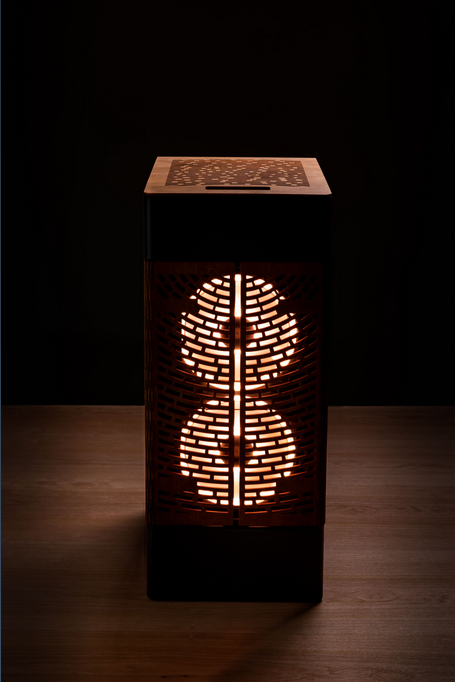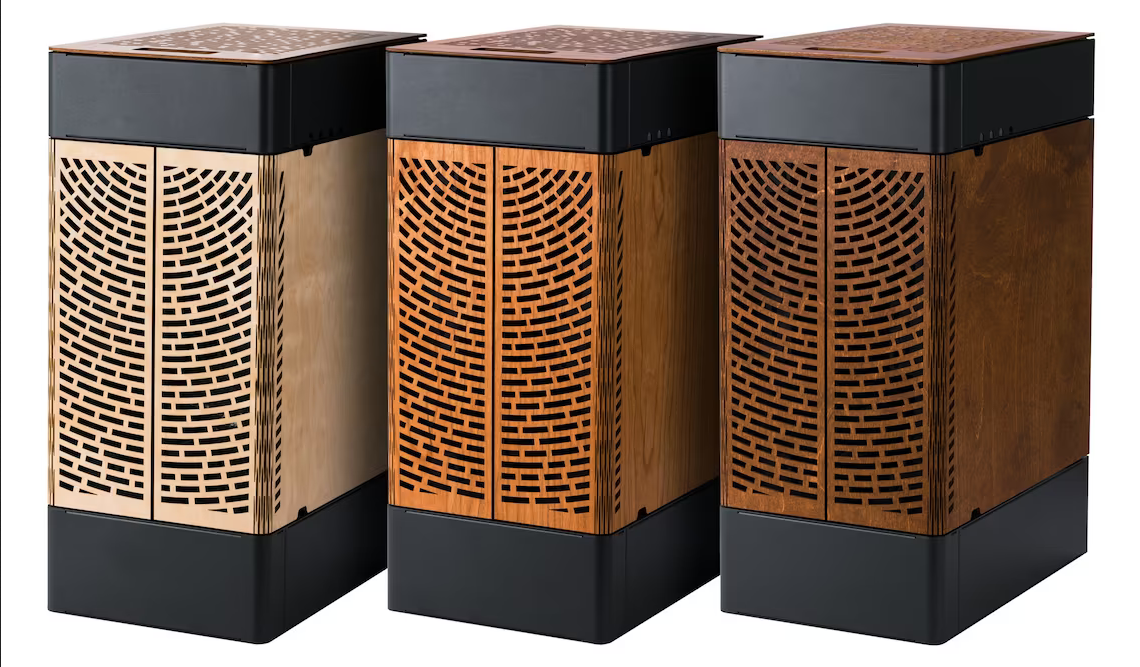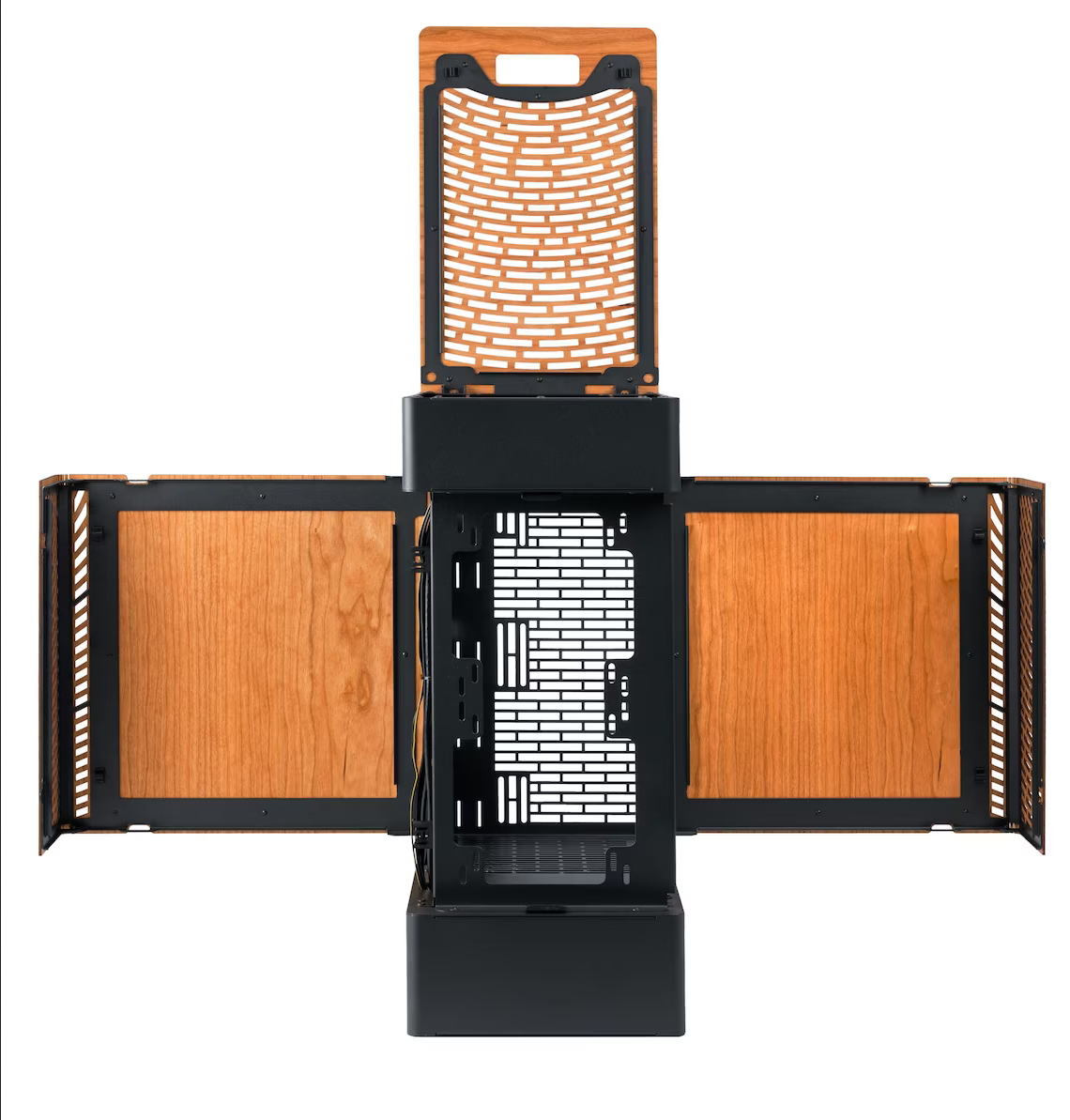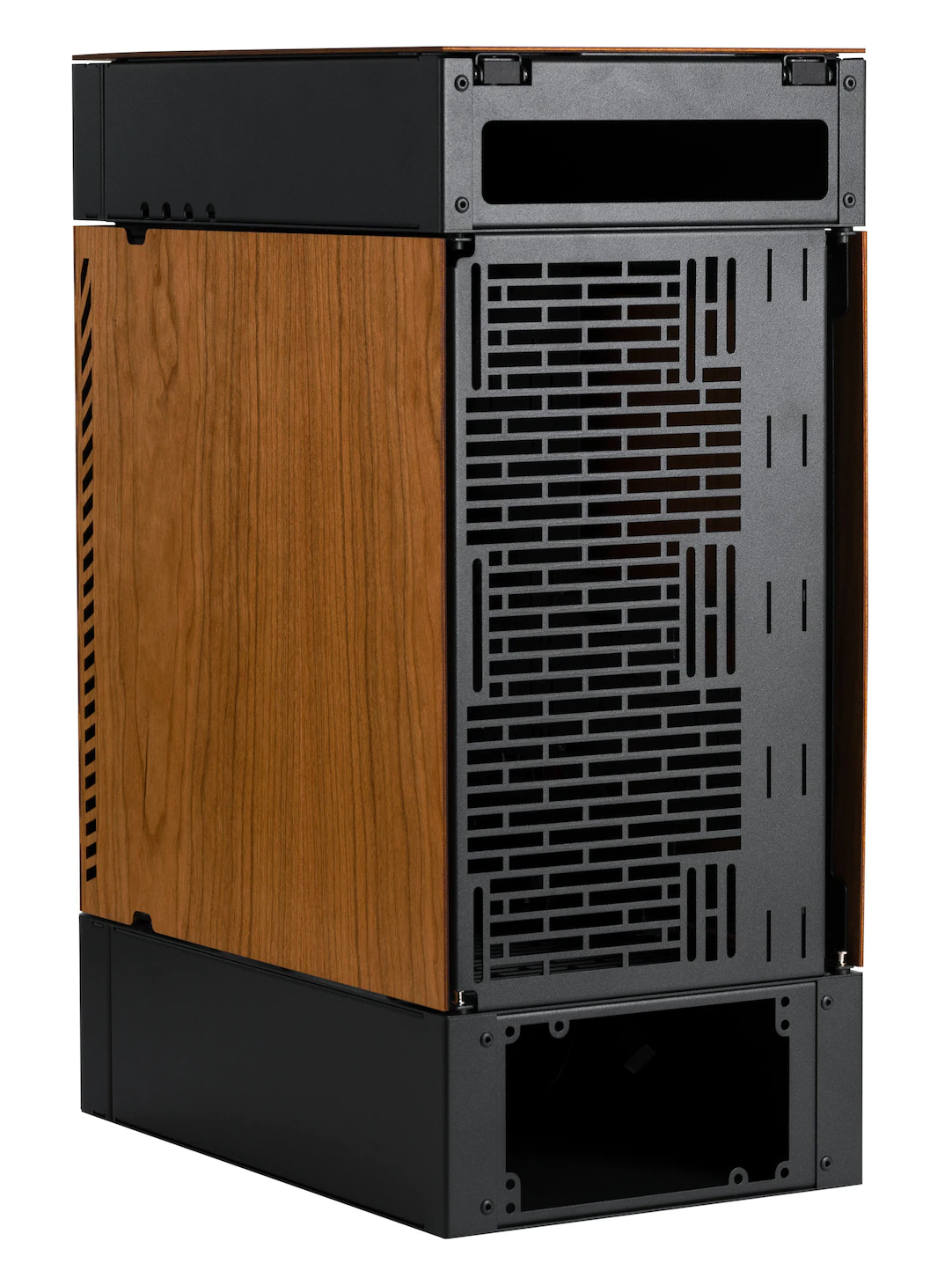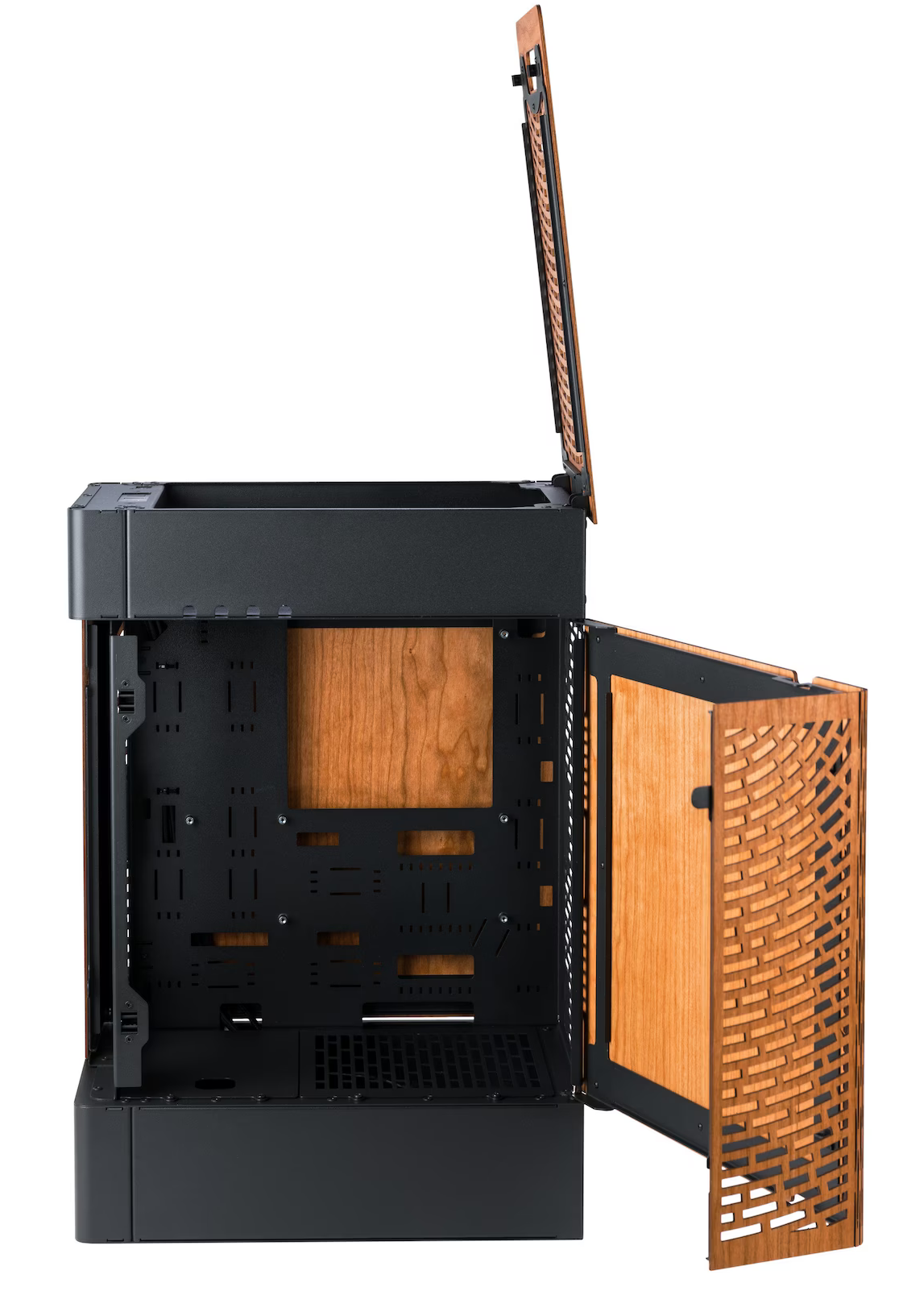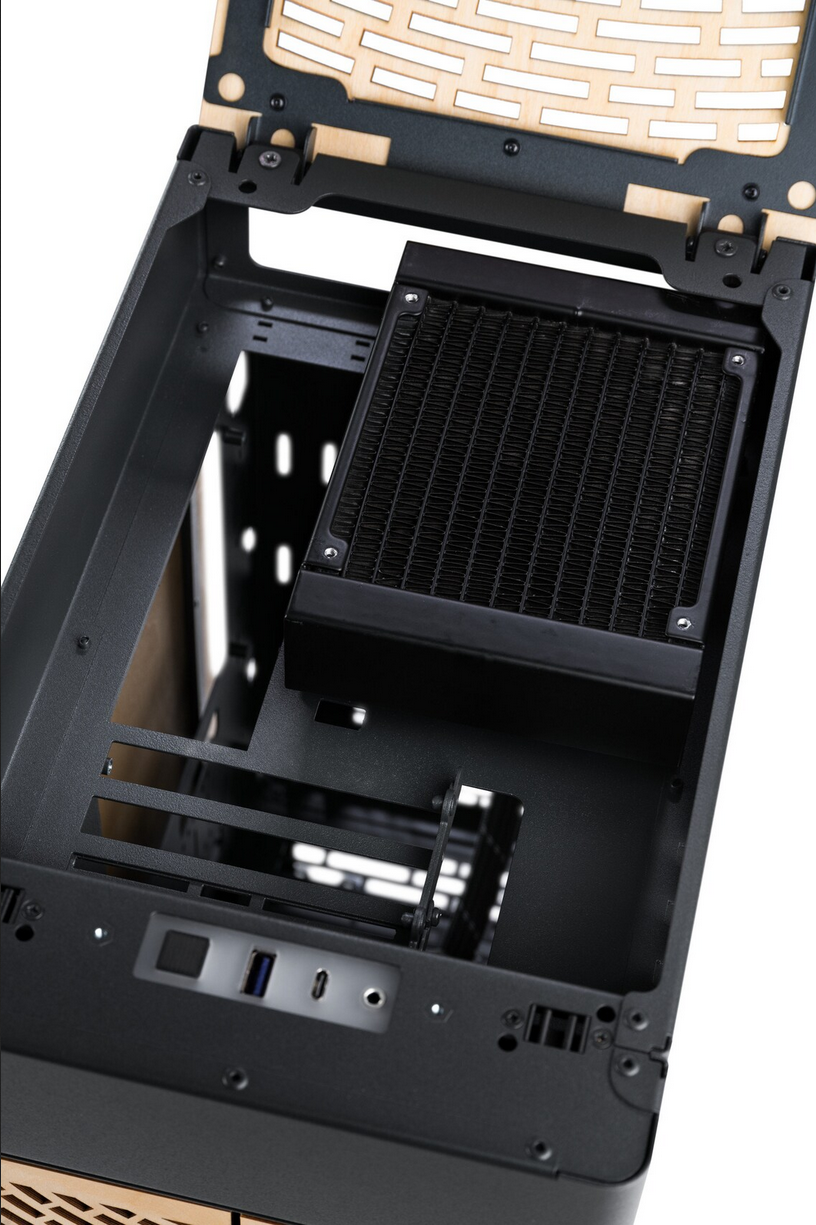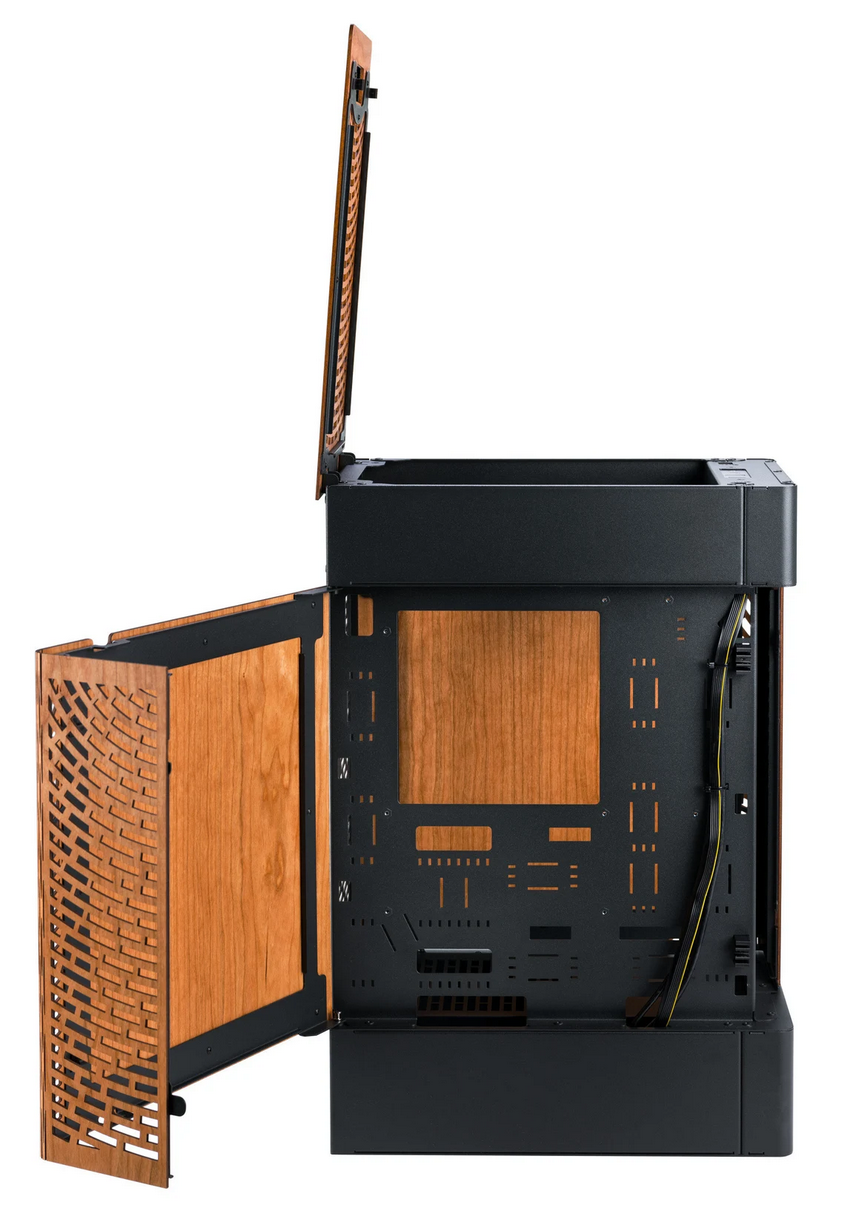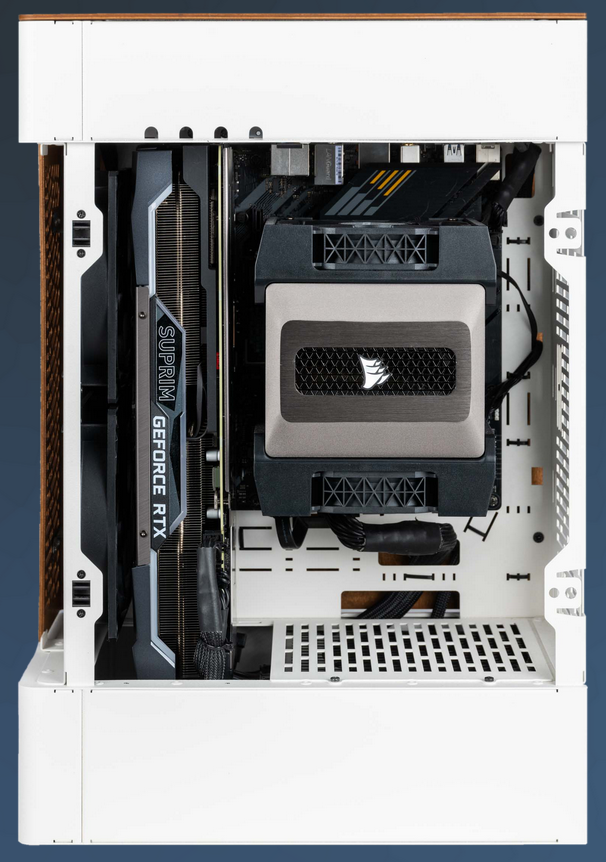As part of this, I reached out to Jarkko Surakka of Finland; the owner of Cubeor for some of the story of how his case came to be. The Kanto is exclusively sold on Etsy in the US. This was a message exchange I did with Jarkko. It wasn’t an interview, but I’ve placed interview style questions in to help separate the topics.
Is the Kanto still in production?
Can you tell us about how you designed the Kanto?
The province where our workshop is has a strong woodworking tradition. That inspired us to consider wood, trees, and nature as Kanto’s primary source of inspiration and material.
Most cases today look like they are coming from the same production line; they all have the same looks/layout.
We wanted to create something that would stand out yet still be practical and have excellent air cooling, and the case is supposed to look good when situated on a work desk.
How about the technical design of it?
Visit the Cubeor website by CLICKING HERE.

